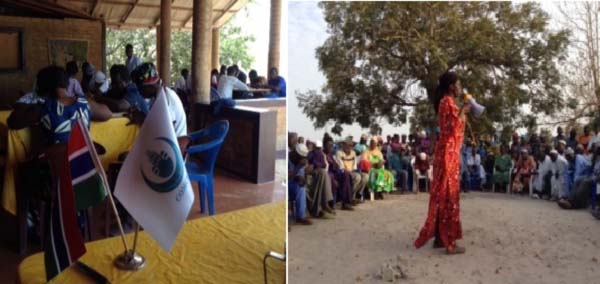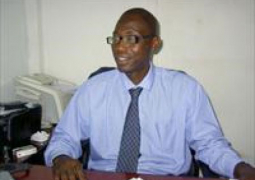
The training, which is being attended by more than 30 people, is a programme of Global Eco-village Network, and it is funded by COMCEC project.
The curriculum of the training is said to be developed years ago by a group of eco-village educators, worldwide, known as GEESE (Global Eco-village Educators for Sustainable Earth).
The curriculum, launched in Findhorn in 2005, was an official contribution to the UN Decade of Education for Sustainable Development (UNDESD) 2005 - 2014.
Officials of EDE said the programme is a 125-hour course which has been carried out more than 190 times in more than 34 countries on the six continents since 2006.More than 5,000 people have participated in the course worldwide.
The EDE programmes are meant for anyone wishing to learn about sustainability principles, and especially for those who might like to teach eco-tourism design in their local area.
John TB Gomez, a participant from Kachumeh village, said the programme offered them the opportunity to be taught in different areas such as cultural dialogue, ecological protection, and entrepreneurship.
Daniel Greenberg, co-founder and CEO of Earth Deeds, said his organisation offers “innovative online tools” for understanding and transforming carbon footprints through supporting sustainability projects.
“Earth Deeds is trying to fill this gap with easy to use online tools to enable all of us to acknowledge our environmental impacts and support meaningful projects that build local community resilience,” Mr Greenberg said.
According to him, global warming is likely the greatest human threats ever faced. Therefore, there is need for positive collective actions to preserve a healthy planet, for posterity is key and paramount to sustainable socio-economic development for all.
“In order to make a real difference, we must go beyond individual behaviours and find ways to increase our collective awareness and actions,” Mr Greenberg said.
“Thus, there is need for effective, collaborative tools to understand and respond to our collective impacts and create more resilient communities and ecosystems.”
Maurice Philips, director of Sandele Eco-retreat Resort, said the resort was built by his wife Geri and himself.But they collaborated with local craftsmen using sustainable and eco-friendly construction techniques, and materials sourced from the surrounding area.
Mr Philips said that in 2014, Sandele Eco-retreat set up a small, highly successful turtle conservation centre, adding that more than 4,000 eggs were collected and more than 2,000 baby turtles were released to the sea last year.
He also said the baby turtles hatch between late July and November and guests are encouraged to visit the hatchery and witness the progressions of the turtles to the sea.


